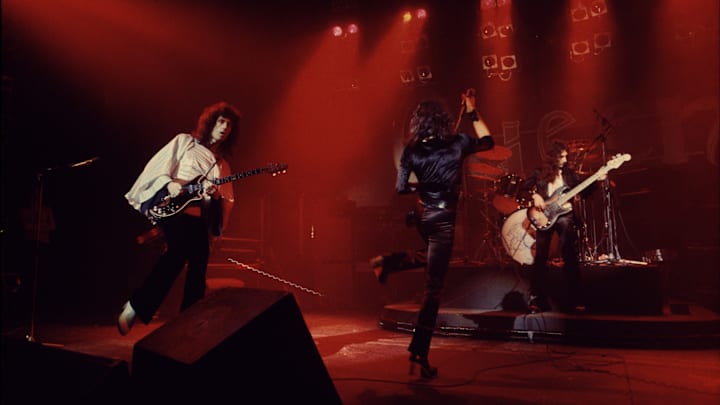“LAY DOWN STAY DOWN” by Deep Purple
We now enter the heavy part of the list. This is Mark III Purple. If you don’t know what that means, don’t worry. Smarter men than I have lost their minds trying to chart the changes in personnel and direction this British band has undergone in nearly sixty years of cranking out hard rock.
This is from their Burn album, which was most known for its title track – and for having some guy named David Coverdale take over the lead vocals from Ian Gillan (of the Mark II lineup). It also had Glenn Hughes on bass, and saw the beginning of a reduced role for founding guitar player Ritchie Blackmore. But Blackmore was present on this blowout.
Coverdale and Hughes trade off the vocals. Ian Paice annihilates his drums. Then, halfway in, Blackmore reminds you that he’s still in the band with a lyrical, technical, lightning solo that goes on for well over a minute. Many a drunken brawl has grown out of a debate over which Deep Purple lineup rocked the best, but at least with this one song, Mark III can make a good claim to the title.
“THE BALLAD OF CURTIS LOEW” by Lynyrd Skynyrd
OK, the heavy part of the list is over. Instead, we get one of the best southern rock blues songs of the ‘70s, which was overshadowed by Skynyrd’s monster hit “Sweet Home Alabama” from Second Helping.
Ronnie Van Zandt comes awfully close to Gregg Allman territory with his restrained vocal attack. Allen Collins, one of three full-time guitarists the band had at the time, who co-wrote the song with Van Zandt, provides an atmospheric slide that hovers like the ghost of the forgotten legend about whom Van Zandt is singing. Al Kooper, who produced the album, provides some background keyboards.
Second Helping opened with “Sweet Home Alabama” and closed with “Call Me the Breeze.” It rocked out with “Don’t Ask Me No Questions” and “The Needle and the Spoon” in the middle. But it is the quiet memory of an old, overlooked dobro player that has grown larger and larger over the last fifty years. There have been multiple reports of a film adaptation.
It is one of Phish’s most popular live covers. The fact that Van Zandt only performed the song in concert one time before his tragic death only adds to its legend. Even without film, Phish, or tragedy, the song remains one of the best of the decade.
